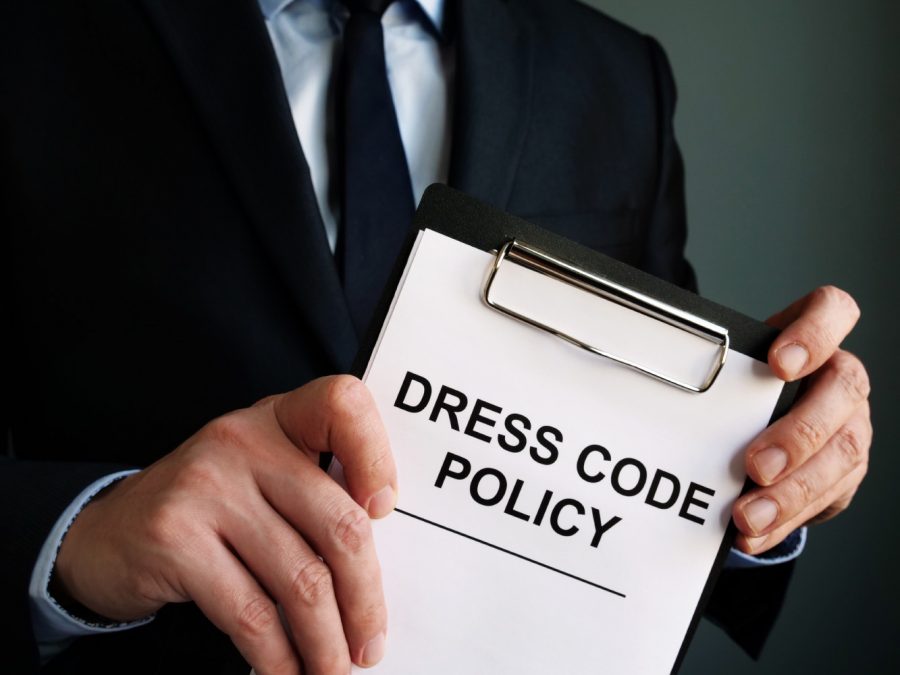Opinion | It’s no one else’s decision what you can wear
It’s time to stop restricting, judging, and dictating what people can wear.
Manager is holding Dress code policy.
September 13, 2021
It was the first Hawkeye football game of the year, and my friends and I were running late. To our fortune, we found a Cambus that would take us to the stadium rather than walking two miles. The four of us loaded onto the bus. However, we noticed a man looking at my friend’s distressed jeans that exposed most of her legs.
“Did you buy those jeans half off?” he said.
Though I want to give that stranger the benefit of doubt and recognize that it was just a joke, his remark was not funny. In fact, it was insulting and arrogant. Satirical comments about clothing and physical features are a norm in today’s society that needs to end.
This school year, schools are more likely to be concerned with students wearing midriffs, spaghetti straps, or leggings than students not wearing masks. Many people like myself recall being dress coded for an exposed shoulder or pair of shorts that did not go beyond our fingertips
In many cases, dress codes contribute to the very problem that dress codes seek to address: the inappropriate sexualization of female students.
In a survey conducted by The Phi Delta Kappan Journal for Educators, Black females had the highest percentages for being dress-coded at school. This shows how dress codes can disproportionately impact their intended audience.
Dress codes are in place to prevent students from distracting their peers instead of teaching students to respect everyone’s body. When students violate dress codes, they are disciplined. However, this places blame on students for how they look, further contributing to the norm of shaming people for their appearance.
Placing blame on someone for their appearance puts that individual as the culprit and bystanders as victims when it comes to issues like sexual assault. Likewise, it makes the implication that someone was “asking for it,” meaning they desire and therefore deserve negative attention. Students need to know it’s not women’s fault for having an appearance.
We need to teach students to respect bodies of all types. But we also need to teach this behavior outside of the classroom.
Though some argue society has become too fragile to humor, we need to make it clear that satirical or inappropriate comments on people’s appearance are never acceptable.
Rather than contributing to a culture of harsh judgment over appearances, we need to cultivate a culture of acceptance and respect.
This includes calling out your friends when they make fun of someone’s outfit or standing up to a family member’s inappropriate comments. This also starts with the younger generations still in school. Check in on the kids in your life to see how dress codes have affected them and stand up to historically sexist dress codes.
We need to do better as a society to see and think beyond the outward appearance. We must become more respectful and considerate with the things we say about people.
I think about my past co-worker who called a customer a “whore” for not wearing a bra or my classmate who said someone was a prude for wearing a sweater in the summer. You may say it’s just a joke, but it’s never really a joke. If that is your idea of comedy, please keep it to yourself.
Columns reflect the opinions of the authors and are not necessarily those of the Editorial Board, The Daily Iowan, or other organizations in which the author may be involved.



